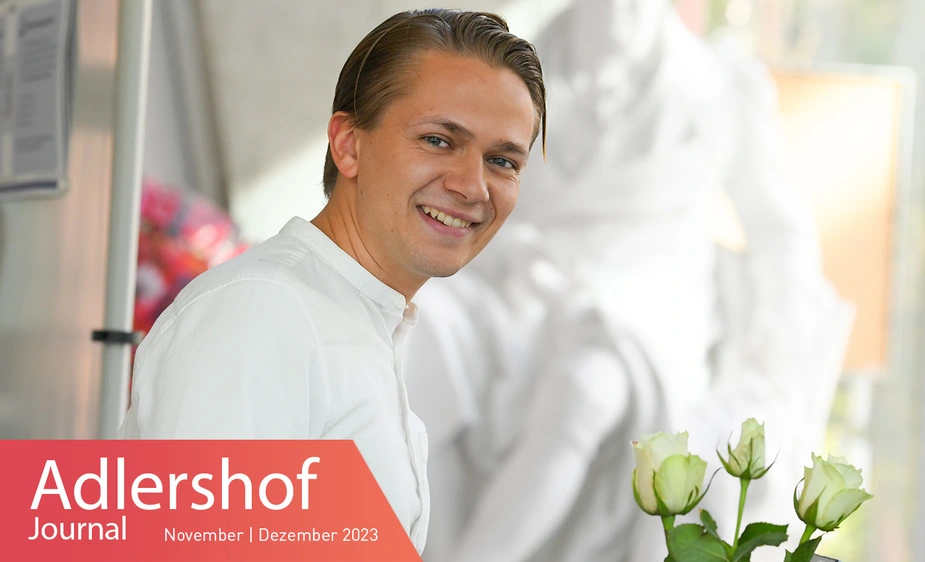The trail of the roses
Jakob Engel investigates supply chains at the Department of Geography at Humboldt-Universität
On his research journeys, he would hear people say, “We don’t do email in Africa!” Time and time again, Engel had to become quite inventive to obtain the information he needed for his studies. In his doctoral thesis, he is hot on the trail of the global rose trade between Africa and Europe. The key questions: What do the supply chains look like, how are they influenced by shocks and crises – and what helps to design supply chains in a resilient way?
A few swift cuts with the garden shears, a short transport route, and there you have the roses on the table. This is not what supply chains look like nowadays. “We are seeing the production of goods being divided into process steps that take place at various locations,” says Jakob Engel. The roses are grown in Kenya and flown to the Netherlands before they end up in German flower shops. Until the mid-20th century, many of them were still grown in Europe. “This became too costly – especially due to high energy costs. Moreover, there are too few workers to do the hard work. A German rose farmer told me in an interview he would have to charge eight euros per rose under the current circumstances – nobody is prepared to pay these kinds of prices.”
In sub-Saharan Africa, labour is as cheap as the climatic conditions are favourable. Because of this, farms producing up to one million roses per day have been set up there since the mid-1990s. The fact that these are still attractive despite the long shipping routes has to do with tightly managed logistics. “Flowers as products are interesting to researchers because they have extremely high requirements for the cold chain,” says Jakob Engel. If roses lie around for a few hours on a plane with no clearance to take off, they will spoil. If producers and traders are not to lose money, nothing can go wrong in the supply chain. So what does it mean when a pandemic breaks out?
“Everything was shut down for four to six weeks.” Workers could not come to the farms, roses could not be transported, and the auction in the Netherlands – a gigantic flower market with an annual turnover of 4.5 billion euros – was closed. “From one day to the next, people stopped coming to the auction. Huge amounts of goods had to be destroyed, both in Kenia and the Netherlands.” The economic fallout was enormous – and the effect was particularly hard felt by labourers in sub-Saharan Africa. “A shock like that is much more dangerous to the global south than the global north. It can quickly lead to unemployment and hunger.” To swiftly revive their business, the rose trade had to become inventive. “After three, four months, the auction in the Netherlands had digitised the selling process – we’re talking about one of the biggest trading buildings in the world.” Despite all the problems, the shocks of the border closures and the COVID crisis also led to innovation.
By the end of 2024, Jakob Engel wants to finish a monograph in which he explains the strategies employed by the relevant actors to deal with shocks and crises. The economic geographer also wants to write about measures that can be used to make supply chains more resilient. “Roses from Kenya almost always travel by plane. When something goes wrong, the entire value chain is up in the air. If sea transport were added, there would be a fallback option and the chain would be more stable.” Overall, says the researcher, sourcing products through complex global supply chains makes sense – especially from a cost perspective. To be sure, the consequences of these structures for, say, local labour markets and the environment are a different story.
Nora Lessing for Adlershof Journal
